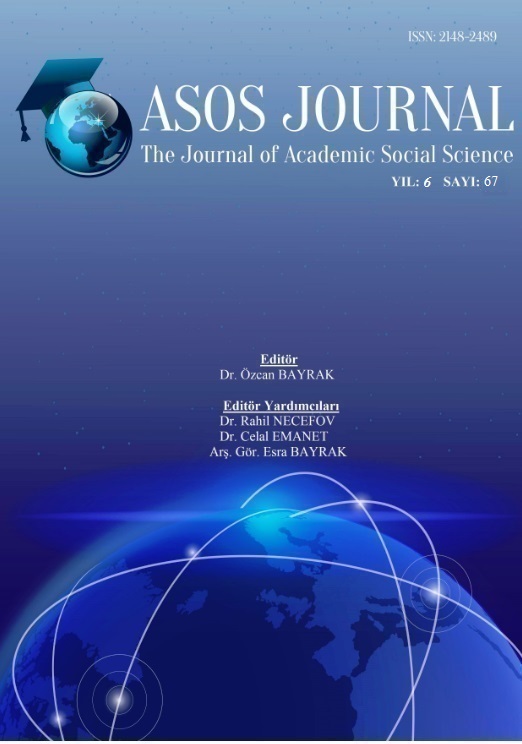Author :
Abstract
Çoklu Zeka Kuramı son dönemlerin en önemli kuramlarından biridir ve 2005 yılında Türk Eğitim Sistemi'nde gerçekleşen büyük dönüşümde çok da adından söz ettirmiştir. Yeni program, öğrencinin/çocuğun “eğlenme gereksiniminden” söz etmiş ve çocuk olarak/çocuk kalarak öğrenmeyi ön plana almıştır. Bu çerçevede araştırmanın amacı, Hayat Bilgisi dersinde Müziksel Zeka'nın temele alındığı bir ders sürecinin olanaklılığını belirlemektir. Araştırma, eylem araştırması modeline uygundur. Çalışma grubu, İstanbul ili, Zeytinburnu ilçesindeki özel bir okulun 3. sınıfına devam eden 63 kişilik öğrenci; aynı kuruma bağlı çalışan 7 kişilik öğretmen grubudur. Verilere açık uçlu ön-son algı anketi, gözlem, çalışma yaprakları ve günlükler aracılığı ile ulaşılmıştır. Elde edilen verilere, içerik analizi uygulanmıştır. Araştırmada, Müziksel Zeka temelli Hayat Bilgisi derslerinin kazanımlara ulaşma konusunda etkili olduğu sonucu çıkmıştır. Ayrıca uygulamadan önce öğretmenlerin şarkıları ders işleniş sürecinde kullanmadıkları, salt şarkıları kullanarak ders işleme konusunun etkililiği konusunda kararsız kaldıkları; uygulamadan sonra fikirlerinin olumlu bir değişim geçirdiği belirlenmiştir.
Keywords
Abstract
Multiple Intelligence Theory is one of the most important theories of recent times and it was highly mentioned during the big transformation of Turkish Education System in 2005. New program, referred to the “need for enjoyment” of learners/children and brought learning while being/staying a child to forefront. Within this frame, the purpose of the study is to specify the probability of a life studies course process that is based on musical intelligence. This study is appropriate for action research. Participants of the study are 63 third grade students and 7 teachers from a private school in Zeytinburnu, Istanbul. Data was collected through open-ended pre-post perception questionnaire, observation, worksheets and diaries. Content analysis were applied to data collected. This study revealed that musical intelligence based life studies course was effective to achieve the objectives. In addition, it was specified that, before the implementation, the teachers did not use songs during lessons, hesitated about the efficiency of using mere songs; their opinions changed in a positive way after the implementation.





